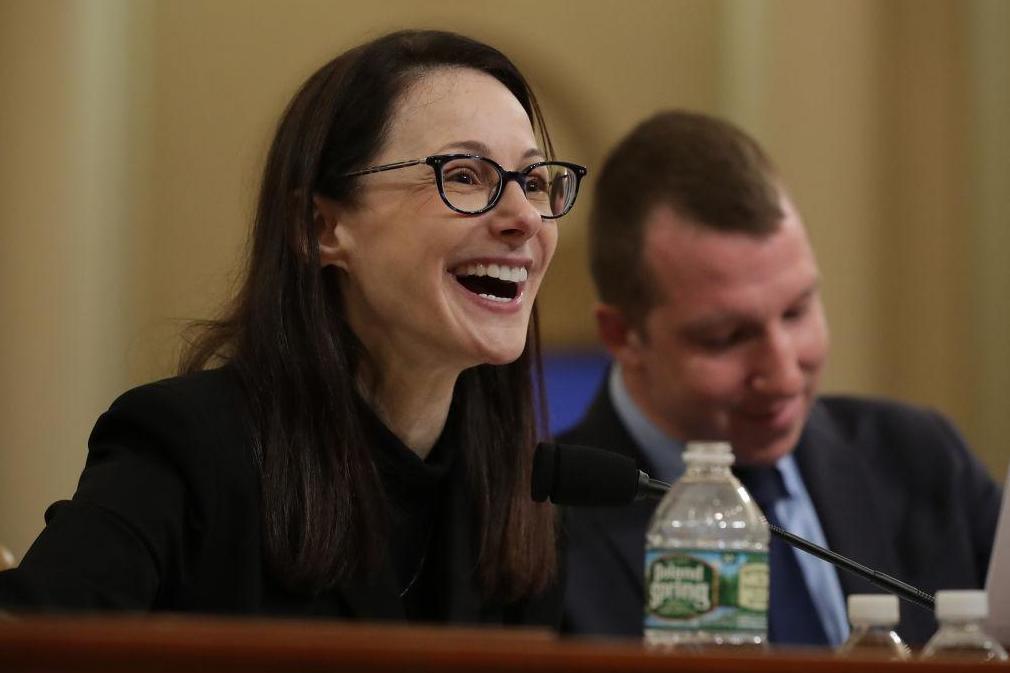MacArthur Foundation 2019: From climate change to cyber security, the 26 ‘geniuses’
Meet the class of scholars, scientists and artists studying criminal justice, immigration and the arts

Your support helps us to tell the story
From reproductive rights to climate change to Big Tech, The Independent is on the ground when the story is developing. Whether it's investigating the financials of Elon Musk's pro-Trump PAC or producing our latest documentary, 'The A Word', which shines a light on the American women fighting for reproductive rights, we know how important it is to parse out the facts from the messaging.
At such a critical moment in US history, we need reporters on the ground. Your donation allows us to keep sending journalists to speak to both sides of the story.
The Independent is trusted by Americans across the entire political spectrum. And unlike many other quality news outlets, we choose not to lock Americans out of our reporting and analysis with paywalls. We believe quality journalism should be available to everyone, paid for by those who can afford it.
Your support makes all the difference.Female experts in cyber harassment, slavery and climate change have been awarded hundreds of thousands of pounds as part of an annual fellowship recognising 26 young "geniuses".
Since 1981, The John D. and Catherine T. MacArthur Foundation’s so-called “genius” fellowship grants are awarded annually to individuals, not institutions, to “pursue their own creative, intellectual, and professional inclinations,” according to the foundation. Criteria for the awards include “exceptional creativity” the “promise for important future advances based on a track record of significant accomplishments,” and a potential to produce new work. The foundation has named 1,040 geniuses since 1981.
The grants are not conditional or relative to specific projects, however; the quarterly stipend supports recipients’ abilities to “exercise their own creative instincts for the benefit of human society.”
“From addressing the consequences of climate change to furthering our understanding of human behaviour to fusing forms of artistic expression, this year’s 26 extraordinary MacArthur Fellows demonstrate the power of individual creativity to reframe old problems, spur reflection, create new knowledge, and better the world for everyone", MacArthur president John Palfrey said in a statement. “They give us reason for hope, and they inspire us all to follow our own creative instincts.”
Fellows include geochemist and paleoclimatologist Andrea Dutton and theoretical geophysicist Jerry X Mitrovica, whose works explore sea level rise, and marine scientist Stacy Jupiter, who studies conservation strategies to protect ecosystems and coastal communities.
Computer scientist Joshua Tenenbaum uses artificial intelligence and computer modelling to better understand how the mind works; neuroscientist Vanessa Ruta investigates how physical stimuli shape those innate and learned human behaviours.
Several of this year’s fellows study the role and impacts of the criminal justice system, from its roots in slavery to modern-day immigration detention practices, and how to better fight crime on- and offline.
Historian Kelly Lytle Hernandez studies the history of border patrol in the US as well as the history of incarceration in Los Angeles County.
Saidiya Hartman traces the impacts of slavery in America, most recently in her 2019 book Wayward Lives, Beautiful Experiments, which details the lives of young black women who fled the US South and moved northeast at the turn of the 20th century. Danielle Citron, a legal scholar studying cyber harassment, has worked with state governments to combat online abuse.
Attorney sujatha baliga’s work focuses on expanding survivor-centered justice programmes and breaking cycles of recidivism impacting communities of colour. Lisa Daugaard developed Law Enforcement Assisted Diversion, which replaced punitive policing with public health and harm reduction services in the Seattle, Washington area.
Graphic novelist Lynda Barry, guitarist Mary Halvorson, writers Valeria Luiselli and Ocean Vuong, and visual artists Mel Chin, Jeffrey Gibson and Walter Hood are among this year’s rank of creative arts fellows.
MacArthur grant recipients are named by an anonymous and rotating pool of nominators who represent a diverse range of career backgrounds and interests. A selection committee then reviews those nominees, who are finally submitted to the foundation’s president and board of directors.
A full list of recipients is available on the MacArthur website.
Join our commenting forum
Join thought-provoking conversations, follow other Independent readers and see their replies
Comments